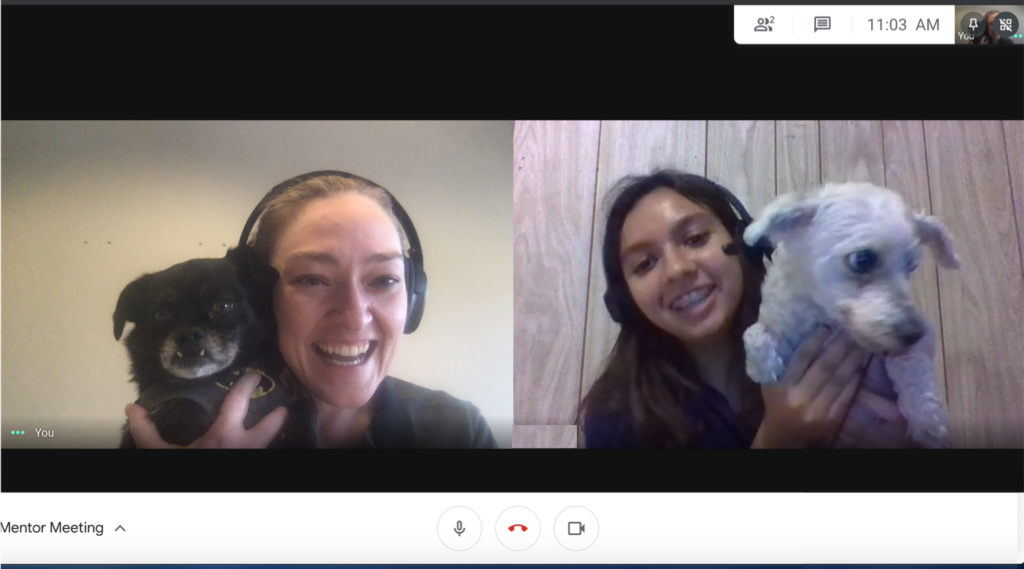By Alejandra Dominguez and Holly Armstrong
It’s no secret that relationships matter in the world of education, but the key to building meaningful, authentic, and transformative relationships with students is both an illusive art and a mysterious science. What is the best way to connect with any individual student and then continue to deepen that connection through life’s ups and downs? How can we build trust with someone who may have been hurt by others in an academic space in the past? How do we utilize our relationships to build student confidence and competence? Why does any of this matter for the success of college students in an online degree program (and especially during COVID-19)?
For the research addicts, psychology nerds, and other folks who simply love learning, let’s start with a little context about the importance of relationships:
- If you aren’t familiar with Maslow’s Hierarchy of Needs – and you work, live, or interact in any way with other people – we strongly recommend familiarizing yourself with the basics of this theory on motivation (here is one quick resource to check out). In a nutshell, a person must fulfill their most basic needs at the bottom of his pyramid before they are motivated by and able to focus on the higher needs. True learning and growth in school exists at the top of this pyramid, which means that a person needs to focus on acquiring physiological needs, life stability and safety, and feeling love and belongingness before they can work towards developing self-esteem, and then eventually seek to achieve self-actualization (i.e. school, learning, online degree program). Thus, connection to others is a prerequisite before a student can authentically experience success in college.
- All people experience challenges in life, and research has shown that when we don’t talk about them with others, this not sharing can lead to long-term immune function and physical health problems (Pennebaker, 2018).
- When the US Partnership on Mobility and Poverty, the Bill and Melinda Gates Foundation, and the Urban Institute collaborated to understand mobility, they found that economic success alone was not enough for an individual to break out of poverty. The two other necessary factors were power and autonomy and “being valued in community – their sense of belonging” (Acs et al., 2018).
- Among college students, research indicates that increasing sense of belonging can actually “shrink disparities in achievement and improve overall happiness and health” (Acs et al., 2018).
- As education leaders, we have the unique opportunity to help cultivate the environments and relationships that enable students to practice shame resilience (Brown, 2007).
Clearly, relationships matter. So why do relationships matter now, in a virtual world? Educators and education leaders have the responsibility of engineering classroom culture, communication, and conversations that nurture trust and vulnerability, invite risks and mistakes, and promote struggle and failure as the key to true growth and learning. The trust that results from building authentic relationships transcends the differences between in-person and online interactions, enabling us to support students with the difficult obstacles that COVID-19 has presented when students have financial struggles or food instability. Many students are currently working full-time to support themselves and their families while also working flexibly on their college degree through online programs. Transformational relationships (not transactional relationships) are the key to building that sense of belonging that is the foundation for school success, overall wellbeing, and economic mobility.
Below are our top tips to build relationships with students in the midst of COVID-19:
- Do your best to treat virtual relationships the same as you would in person.
Trying to build relationships with students from your bedroom or living room may feel strange for you, but it will likely feel even stranger for students. Help them become comfortable more quickly by treating your relationship-building as you would in person. Prioritize time for small talk and getting to know each other better, celebrate with (virtual) high fives, and of course make sure you are listening actively despite potential distractions. At AdvanceEDU, we have found that building relationships online requires balancing authenticity with infusing additional energy to virtual relationship-building. Be yourself, but expect that you may need to accentuate your personality “quirks” for your authentic self to come across through video chat or phone calls.
- Be creative in overcoming new challenges.
With COVID-19’s challenges come opportunities, like flexing our creative muscles to figure out new ways to engage with students. Can you rely on screen sharing to show students something you are working on or troubleshoot any issues they are having? Do you have a pet or other fun things to share with students to help break the ice? Can you identify creative ways to bring aspects of being in-person right to the student’s home? An integral part of AdvanceEDU’s onboarding is relationship-building among students and between students and staff. Instead of gathering on campus to share a meal together, we scheduled a virtual lunch and sent all students an electronic gift card so they could order a meal from GrubHub. This creative approach allowed us to provide AdvanceEDU students with a meal and with an opportunity to get to know other students and staff better, all from the safety and comfort of their own homes.
Additionally, don’t forget that relationship building happens not just in the formal, scheduled meetings, but also in small interactions that add up over time. At AdvanceEDU we send students weekly emails with a reminder of what they should keep in mind for the upcoming week, check in through text, and send along memes, funny pictures, or encouragement. We aim to have small virtual interactions replace campus chit chat and other small encounters, as they are essential to developing trust.
- Be flexible and adapt to obstacles.
Despite our best efforts to keep our relationship-building as normal as possible, relying on technology poses some unique challenges that require flexibility. Not all students will have access to reliable internet or a quiet “meeting space” at home, and you may encounter choppy sound, blurry videos, freezing, and even being disconnected entirely. Help set the tone for students to manage these challenges by remaining calm and flexible. Be open to changing meeting times at the last minute if something comes up, to students moving around their houses looking for a better internet signal, and to being ready to jump on the phone if technology just won’t work. Additionally, be flexible with noise and background; students may be meeting with you in their yards, during breaks at work, or while taking care of children or siblings. Being flexible and understanding of our students’ circumstances is a key way to show them that we care about them and will support them through all obstacles.
- Don’t make assumptions.
Holding high expectations for our students while showing grace and flexibility is the foundation of our coaching philosophy at AdvanceEDU. These principles are even more important while trying to build relationships online, when limited access to our students makes it easier to make assumptions about their circumstances, commitments, and intentions. Remind yourself that life is even more complicated for many of our students now and dig to find the actual root cause or reason behind a student’s behavior instead of jumping to conclusions. An example that you will likely encounter is students’ discomfort with turning on their camera during individual or group meetings. It is tempting to assume that a student is turning off their video because they are disengaged, but there are many alternative explanations. Students may be uncomfortable with others seeing their living situations or for students with body dysmorphia, they may be triggered by the video and audio required in video conferencing. Support students from ALL backgrounds and identities by always seeking to understand first.
- Be patient and focus on building trust.
Not having the opportunity to meet with students regularly in person may slow down the relationship-building process. Remind yourself to be patient, and focus on building trust with students. At AdvanceEDU, all students begin by completing an Academic Onboarding. During this time, students refresh their academic skills, get familiar with academic platforms, and develop relationships with their Success Coach. Every week, students complete a mentor meeting assignment, which is intentionally designed to challenge students to reflect on their strengths, motivation style, and potential future obstacles to prepare them for their online degree. These assignments are a great launching off point during weekly coaching meetings, providing an opportunity for coaches to have intentional conversations with students immediately after student reflection – and to return to as helpful for future life changes. This approach is essential to relationship-building in a virtual world, but remember that students are likely not used to sharing things virtually, and getting to a place of comfort will require time. Be vulnerable and honest about your own struggles with COVID-19, worldwide politics and events, and your own well-being, it will help set an example for students and help them see that they are not on their own.
Relationship Building is Possible in Our COVID-19 Era
AdvanceEDU has very recently launched, and we’ve already observed the impact of our short relationships with our students. One of our older hybrid college peers, PelotonU, has seen how transformative relationships have helped maintain their high student persistence levels amidst the pandemic. Students trust their coach to share the obstacles they are facing; coaches focus on high-quality virtual student support, intentionally building relationships through even the smallest interactions; throughout the change and new stresses of COVID-19, students continue working toward their degrees. PelotonU is a great example of the power of relationship-building for students during the most difficult times, with students persisting at almost 80%!
Now more than ever, students need affordable degree program options that offer the opportunity to acquire the skills employers actually need – all while allowing the flexibility to work on school and manage other life obligations and responsibilities. AdvanceEDU not only offers flexible and affordable online degree programs to meet students where they are in life, but also focuses on creating a sense of belonging through authentic and transformational relationships.
References
Acs, G., Maitreyi, A., Conner, A.L., Markus, H.R., Patel, N.G., Lyons-Padilla, S., & Eberhardt, J.L. (2018). Measuring Mobility from Poverty. http://sparqtools.org/wp-content/uploads/2018/05/measuring_mobility_paper.pdf?utm_source=sparqtoolsSectionBlurb&utm_medium=sparqtoolsOrg&utm_campaign=pdfDownloads
Brown, B. (2017). I Thought It was Just Me (But It Isn’t): Making the journey from “What will people think?” to “I am enough.” New York, New York: Avery.
Pennebaker, J.W. (2018). Expressive writing in psychological science. Perspectives on Psychological Science, 13(2), 226-229.



